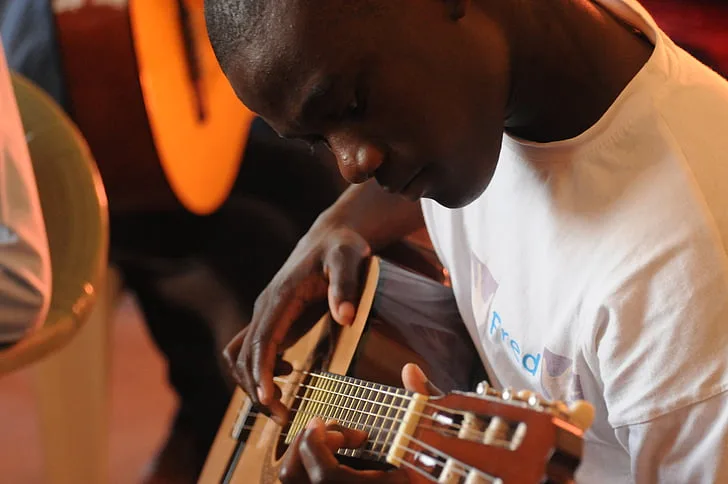
The State of Music Education in the UK & Europe 2025: Key Statistics and Trends
Music education plays a vital role in shaping creativity, cognitive development, and cultural appreciation. However, the landscape of music education in the UK and Europe is evolving rapidly, influenced by factors such as funding cuts, technology integration, and socioeconomic disparities.
At Top of the Rock Tuition, we are passionate about making music education accessible and ensuring that students receive the best possible support. In this post, we explore the key statistics and trends shaping music education in the UK and across Europe in 2025.
1. Funding and Investment in Music Education
Funding has always been a crucial factor in determining the quality and accessibility of music education. In the UK, the government has taken steps to support music tuition, but challenges remain.
Government Support and Budget Shortfalls
- The UK government has pledged £79 million annually until 2025 to support the Music Hubs programme, aimed at improving access to music education.
- Despite this investment, experts predict a £161.4 million shortfall in the National Plan for Music Education over the next five years, indicating that further investment is necessary to meet demand.
Sources: Lords Library, Demos
European Investment in Music Education
- Across Europe, music education policies vary. Some countries, such as Finland and the Netherlands, integrate music technology and digital tools into their curriculums, while others struggle with underfunded programmes.
- The European Commission has highlighted the importance of music education in fostering cultural identity and social cohesion, but funding levels remain inconsistent.
While government investment is welcome, the shortfalls and disparities in funding highlight the need for private initiatives, scholarships, and local music schools to step up and bridge the gap.
2. Declining Student Participation in Music Education
Despite the well-documented benefits of learning an instrument, music education in UK schools is facing a decline in student participation, particularly at GCSE and A-Level.
Music Qualification Decline in the UK
- GCSE music entries have dropped by 36% since 2010, raising concerns about student engagement and long-term sustainability.
- Only 5,000 students took A-Level Music in 2023, representing a 45% decline in the past decade.
Source: RNCM
One key reason for this decline is that many schools are reducing or removing music education from their curriculum in favour of subjects prioritised in performance metrics, such as maths and science. This trend could have long-term consequences for the music industry, as fewer students pursue music at a professional level.
Curriculum Requirements: Are Schools Meeting Targets?
- The National Plan for Music Education recommends that Key Stages 1-3 receive at least one hour of music education per week.
- However, many secondary schools struggle to meet this target, particularly in state-funded institutions where resources are stretched thin.
Source: ISM
Without adequate exposure to music in schools, students may miss out on creative opportunities that could lead to lifelong careers in music or simply enrich their lives through artistic expression.
3. Socioeconomic Disparities in Music Education
Music education is not equally accessible across the UK and Europe, with socioeconomic background playing a significant role in determining access to tuition, instruments, and opportunities.
Private vs. State Education: A Stark Divide
- 50% of students in private schools receive sustained music tuition, compared to just 15% in state schools.
- 17% of professional UK musicians were privately educated, compared to only 7% of the general population, highlighting a major disparity.
Source: UK Music
Working-Class Barriers to Music Careers
- Young people from working-class backgrounds face significant obstacles entering the creative industries, often due to a lack of affordable music education resources.
- These barriers mean that many talented musicians may never have the opportunity to develop their skills and pursue careers in music.
Source: The Guardian
These statistics reveal that music education is becoming increasingly exclusive, and urgent action is needed to make it more accessible to all students, regardless of background.
4. The Role of Technology in Music Education
Technology is revolutionising music education, providing new ways for students to learn instruments, compose, and engage with music.
Online Music Education Growth
- The online music education market is projected to grow at a CAGR of 17.52%, reaching approximately $4.9 billion by 2030.
- Many students now use apps, virtual tutors, and AI-assisted tools to supplement traditional music lessons.
Source: Knowledge Sourcing
AI and Digital Tools in the Classroom
- AI-powered apps provide real-time feedback on instrument performance, helping students refine their skills.
- European countries like Finland and Germany are actively integrating music technology into their curriculums.
While technology can enhance learning, it cannot replace the human connection and creativity that traditional music education provides.
5. The Benefits of Music Education: Why It Still Matters
Despite the challenges, music education remains essential for cognitive, emotional, and social development.
- Studies suggest that children who study music achieve higher academic scores in maths and languages.
- Neuroscientific research indicates that learning an instrument strengthens brain function, particularly in young learners.
Source: Eurydice
Music also reduces stress, improves mental health, and enhances creativity, making it a crucial subject that should not be overlooked in favour of more ‘academic’ disciplines.
Conclusion: The Future of Music Education in the UK & Europe
The statistics show a mixed picture for music education in 2025. While investment and technology are creating new opportunities, declining student participation, funding shortfalls, and socioeconomic barriers present significant challenges.
To ensure a thriving future for music education, we need:
- Greater funding for state schools to ensure music remains in the curriculum.
- More inclusive access to tuition and instruments for students from lower-income backgrounds.
- Continued integration of technology, while preserving the human and creative elements of music learning.
At Top of the Rock Tuition, we are committed to providing high-quality music lessons that balance tradition and innovation. If you’re looking for expert tuition, get in touch today and start your musical journey with us!
